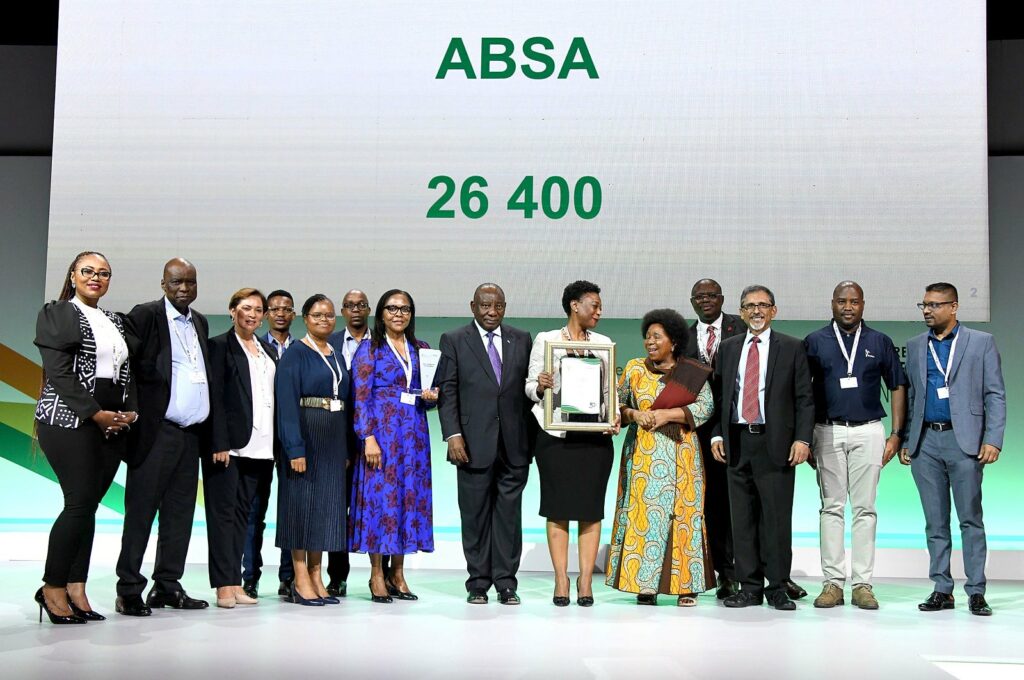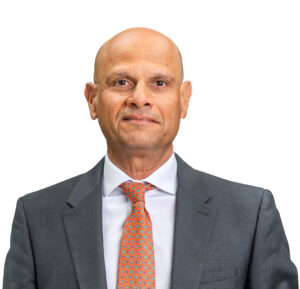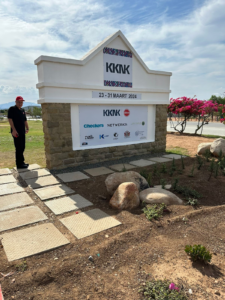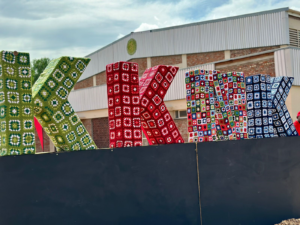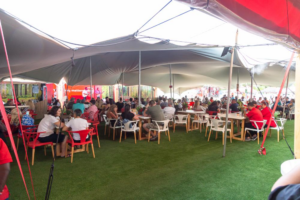In celebration of Youth Month, Absa, in collaboration with Umphakathi Artists, is excited to announce a public special cinema event to honour the legacy of the Class of 1976. This commemorative screening will be held ahead of Youth Day, on June 15th, at the YMCA in Orlando East, Soweto. The programme includes free screenings of local films in underprivileged communities, often produced by young filmmakers who form part of ‘The Biskop Exhibition’.
Absa is celebrating the unique stories of the next generation of creators and innovators through entrepreneurship and financial literacy. Through collaboration with other creative arts organisations that share a similar vision, the bank aims to promote unity in the creative arts industry, subsequently creating spaces and opportunities to empower and develop young people’s entrepreneurial and financial management skills.
Candice Thurston, Absa Group Managing Executive for Brand and Marketing, says, “As we move towards a more human-centred approach to banking, initiatives like these are the ultimate embodiment of our commitment to making a meaningful contribution. We look forward to playing our part in bringing clients and communities together as we recognise and celebrate the talent, dedication, and skill of our existing and future clients, and contribute to a more balanced and equitable landscape within the arts and entertainment industry. We feel partnering with this Biskop/short film screening event in Soweto does this.”
“We strive to create holistic solutions for our customers’ unique needs, particularly young people, in preparation for their financial future. To this end, our comprehensive benefits for young people include our Absa Student Account which offers unlimited free day-to-day banking including card swipes and till-point cash withdrawals, zero monthly account fees, a free monthly data allocation, and lifestyle benefits such as meal and travel vouchers.” Thurston added.
In line with this vision, Absa is kicking off a month-long corporate citizenship programme aimed at engaging the youth to empower and develop their entrepreneurial and financial management skills. On Saturday, June 15th, Absa will partner with young filmmaker Ntokozo Mlaba, the winner of the Young Filmmaker Award at the 2024 Joburg Film Festival, who received financial sponsorship from Absa as part of his next chapter in storytelling.
Ntokozo Mlaba will host a series of free community film screenings across Soweto to celebrate Youth Day and the contributions of youth to South Africa's freedom, simultaneously screening 16 films in multiple townships within Soweto as a commemoration of the Class of 1976.
The series aims to build community through art, using film to foster positive change in society. Communities in Soweto can expect popcorn, drinks, and cinema-style seating for the screening of two significant films that capture the essence of Soweto's vibrant culture and historical resilience. Community members will first enjoy the touching short film, Jemima and Johnny by South African filmmaker Lionel Ngakane, followed by the critically acclaimed Mapantsula, a movie directed by Oliver Schmitz and written by Schmitz and Thomas Mogotlane, filmed deep in the heart of Soweto. Both films offer a captivating glimpse into Soweto's unique cultural landscape, showcasing the talent and creativity of local filmmakers.
In addition to the film screening, this series will pay tribute to the bravery and legacy of the young people who shaped 1976 and beyond. It will serve as a reminder of the enduring spirit and unity of the Soweto community, encouraging reflection and appreciation through the art of cinema. The evening will foster a warm and inclusive atmosphere, inviting guests to connect with one another and celebrate the shared love of local cinema and cultural heritage. This gathering is a chance to engage with fellow community members in a setting that honours history and inspires future generations.
Absa’s new signature or strapline 'Your Story Matters', signals a shift to meeting customers with empathy during every stage of their journey. This promise reflects the bank’s commitment to delivering an experience that is seamless, intuitive, and anticipatory. At Absa, every story holds significance, regardless of its scale. That's why the bank is focusing its solutions and services around the needs of people, the planet, businesses, and society.

.png)
.png)
.png)
.png)
.png)
.png)
.png)

.png)
.png)











